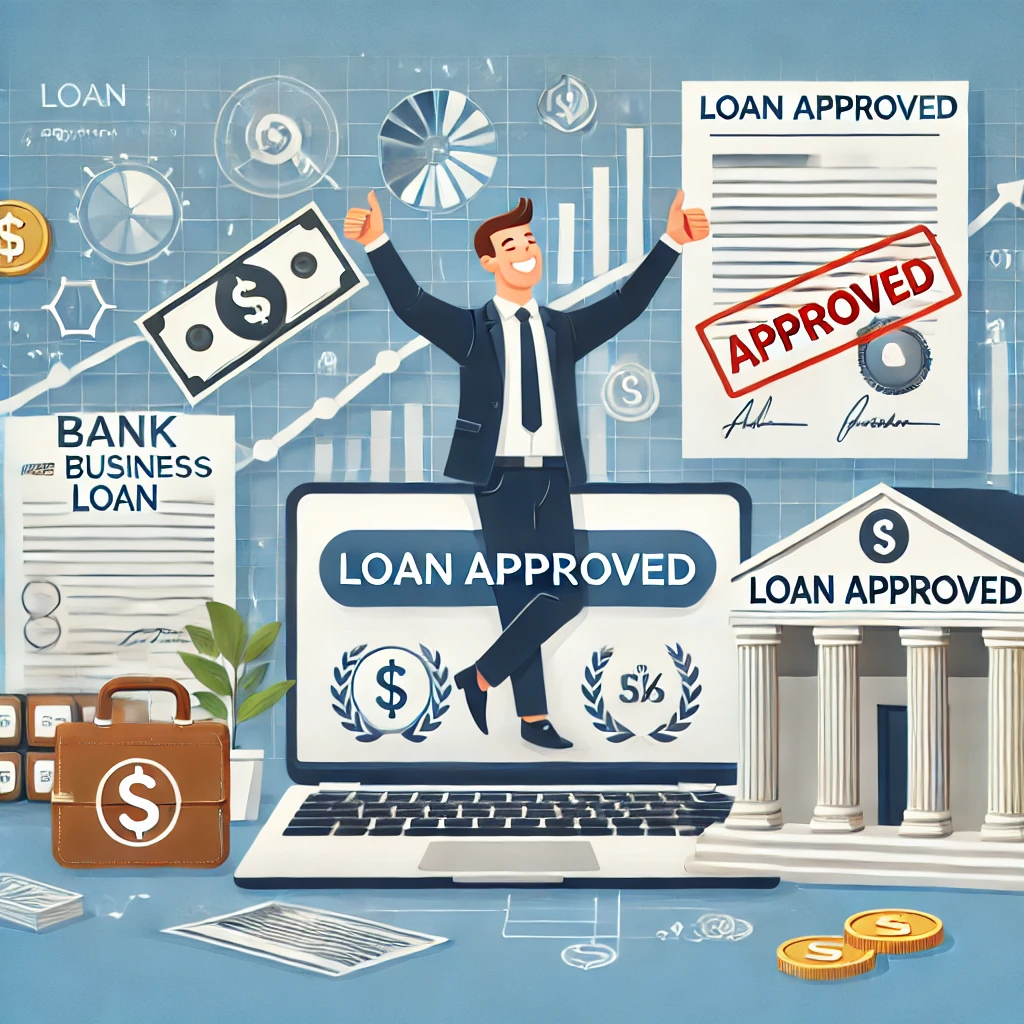Starting or expanding a business often requires financial assistance, and one of the primary ways entrepreneurs secure funding is through business loans. However, many traditional lenders require collateral—an asset such as property, inventory, or equipment that serves as security in case of default. If you don’t have collateral or prefer not to risk your assets, you may wonder how to obtain a business loan without it. Fortunately, there are multiple financing options available for businesses that don’t require collateral. This guide explores various ways to secure a business loan without pledging assets, including eligibility requirements, loan types, and strategies to increase your chances of approval.

Understanding Collateral-Free Business Loans
Collateral-free business loans, also known as unsecured business loans, do not require borrowers to pledge any assets. Instead, lenders evaluate other factors, such as creditworthiness, business revenue, and financial history, to determine eligibility. These loans tend to have stricter qualification requirements, higher interest rates, and shorter repayment terms because they pose a higher risk to lenders.
Advantages of No-Collateral Business Loans
- Reduced Risk to Assets – You don’t have to risk losing property or valuable assets if you’re unable to repay the loan. Moreover, this makes it a safer option for startups.
- Quicker Approval Process – Since there’s no need for asset valuation, the approval process is usually faster. Consequently, you can access funds much sooner.
- Easier Accessibility for Startups – Many startups lack significant assets, making unsecured loans a viable option for them. Therefore, this option allows new businesses to get started more easily.
- Flexibility in Fund Usage – Lenders often allow businesses to use the loan for various purposes, including working capital, expansion, or inventory. As a result, businesses can allocate funds where they are needed most.
Disadvantages of No-Collateral Business Loans
- Higher Interest Rates – To compensate for the risk, lenders charge higher interest rates. Hence, borrowers must be prepared for increased repayment costs.
- Strict Eligibility Criteria – Lenders require strong credit scores, consistent revenue, or other guarantees such as personal guarantees. Thus, it’s essential to maintain a solid financial track record.
- Lower Loan Amounts – Compared to secured loans, collateral-free loans generally provide smaller funding amounts. Consequently, businesses may need alternative funding sources for larger expenses.
Types of Business Loans Without Collateral
1. SBA Loans (Small Business Administration Loans)
The U.S. Small Business Administration (SBA) offers loan programs that don’t always require collateral, particularly for smaller amounts. The SBA 7(a) loan program, for instance, may not require collateral for loans under $25,000. However, personal guarantees are usually required. Therefore, borrowers should be prepared to meet alternative criteria.
2. Business Lines of Credit
A business line of credit functions like a credit card, allowing you to borrow up to a specific limit and only pay interest on the amount used. Additionally, some lenders provide unsecured lines of credit based on your business’s revenue and creditworthiness.
3. Merchant Cash Advances (MCAs)
With an MCA, a lender provides an upfront sum of money, which is repaid through a percentage of future sales. This is an option for businesses with high credit card sales but may come with higher costs. Therefore, business owners should carefully evaluate repayment terms.
4. Invoice Financing
If your business generates revenue through invoices, invoice financing (or factoring) allows you to access funds by leveraging unpaid invoices. In other words, lenders advance you a percentage of the invoice value, which is repaid once the customer pays.
5. Revenue-Based Financing
Some lenders offer loans based on your monthly revenue rather than requiring collateral. As a result, businesses with steady cash flow may qualify for this type of financing.
6. Personal Loans for Business
Entrepreneurs with strong personal credit may qualify for personal loans that can be used for business purposes. Therefore, this can be an alternative funding option for business owners with good credit scores.
7. Venture Capital and Angel Investors
If you’re running a high-growth startup, venture capital firms or angel investors may provide funding without requiring collateral. However, they may request equity in your company in exchange for investment.
8. Microloans
Microloan organizations and nonprofit lenders offer small, unsecured business loans to startups and small businesses, often with favorable terms. Therefore, these can be a great option for new businesses.

How to Qualify for a Business Loan Without Collateral
1. Build a Strong Credit Score
A high personal or business credit score significantly improves loan approval chances. Therefore, maintaining a good credit history is crucial.
2. Show Consistent Business Revenue
Lenders prefer businesses with stable income streams. Providing proof of revenue through bank statements, tax returns, and financial statements can strengthen your application. Consequently, this increases the likelihood of approval.
3. Prepare a Solid Business Plan
A well-prepared business plan detailing financial projections, revenue models, and growth strategies increases lender confidence. Thus, a comprehensive plan can be a major advantage.
4. Consider a Personal Guarantee
Some lenders may require a personal guarantee, meaning you’ll be personally responsible for repaying the loan if the business cannot. As a result, business owners must carefully assess their financial obligations.
5. Reduce Outstanding Debt
A lower debt-to-income ratio makes you a more attractive borrower, as it shows you can handle additional financial responsibilities. Therefore, managing debt wisely can be beneficial.
6. Seek Alternative Lenders
Online lenders and fintech companies often have more flexible requirements than traditional banks, offering better chances for approval. Consequently, exploring multiple options is advisable.
7. Leverage Business Relationships
If you have existing relationships with banks or financial institutions, they may be more willing to provide unsecured financing. Therefore, networking and maintaining strong financial ties can be helpful.

Key Considerations Before Applying for a Loan Without Collateral
- Interest Rates & Fees – Compare different lenders to find the best rates and lowest fees.
- Repayment Terms – Ensure the loan term aligns with your business’s cash flow.
- Eligibility Requirements – Understand each lender’s specific criteria before applying.
- Alternative Funding Options – Explore grants, crowdfunding, or bootstrapping before taking on debt.
Conclusion
Securing a business loan without collateral is possible, but it requires preparation and strategy. Understanding the available loan types, improving your creditworthiness, and demonstrating strong business revenue can enhance your chances of approval. Whether you opt for SBA loans, business lines of credit, or alternative financing methods, careful planning and research will help you find the best solution for your business’s needs. By exploring the right funding sources, entrepreneurs can successfully obtain the necessary capital to grow their businesses without risking personal or business assets.